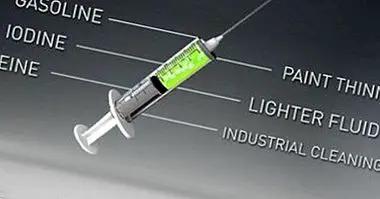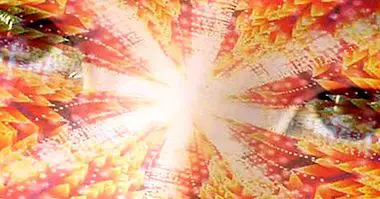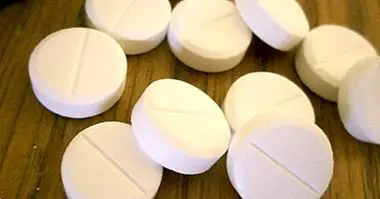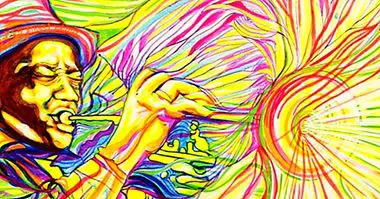Alcohol and cocaine: when their effects are mixed
The link between cocaine and alcohol consumed successively (not simultaneously), where the consumption of a substance is initiated to calm the unpleasant effects that the other substance has left, produces devastating effects.
In this article we will see what happens when the dynamics of consumption of these two addictive substances are mixed.
- Related article: "The 8 signs of alcohol addiction"
Two types of highly addictive stimulants
Alcohol is a toxic substance, capable of producing addiction and even if it produces a disinhibiting effect in the first place , stimulant, is located in the category of depressant psychoactive substances.
This is because after a first moment of producing a disinhibitory action, which stimulates impulses and blocks rational thinking, alcohol begins to produce a general decrease in different functions of the organism that we will describe later.
Cocaine is a stimulating psychoactive substance , which alters the different functions of the organism. It is usually inhaled in the form of powder, but it can also be administered via injection into the bloodstream or smoked in the form of paco (paste base) or crack, which are the ways in which cocaine can be subjected to heat, since otherwise it would burn. In all its forms, cocaine is a substance highly capable of producing addiction.
We can state that the alternate and successive mode of consumption is usually given in the context of a need bond between the consumer and both substances, based on the function that each drug can fulfill according to the person and the use that it gives them. This is: a person may need to use cocaine to avoid the "bajoneadores" effects of alcohol , as well as needing alcohol to get out of the state of alteration produced by cocaine.
- Related article: "The 5 types of cocaine (and differences in addiction)"
Effects of alcohol and cocaine use
The excessive consumption of alcohol produces:
- Decreased heart rate and respiratory rate
- Decrease in body temperature
- Sensation of exhaustion, fatigue and drowsiness, reluctance
- Less attention and psychomotor coordination
With a consecutive use of cocaine, the consuming person can seek to re-activate his body, his mind, under the conception that by means of this drug he will recover sleeping functions as a result of his drunken state and thus achieve a state of greater "stability" .
Cocaine use produces:
- Increased heart rate and the respiratory rate
- Increase in body temperature
- Sensation of euphoria, of greater spirit and energy; hyperactivity, physical and mental excitement
- False sensation of greater performance and success, of greater security and self-confidence
In this way the depressive consequences of the typical "slump" that occurs in the final stage of the drunken episode are counteracted.
At the same time This state of hyperstimulation generated by cocaine can produce tachycardia , muscle rigidity, hallucinations, tremors, dizziness, restlessness, anxiety, panic attacks, aggression, insomnia and the use of alcohol is resorted to "get off" of that feeling of loss of control and excessive hyperactivity.
The appearance of alternate consumption
We investigate the immediate effects of each one of these two substances thought in an episodic use, to understand why many people maintain this type of alternate consumption. We do not stop to expose the various long-term effects of compulsive use that are much more extensive than those mentioned (such as, for example, physical, psychological, bonding, work, legal problems, etc.) because they are beyond the scope of this article.
In this way we describe how one substance counteracts the effect of the other without idealizing either of them or forgetting the harmful nature of both. Both alcohol and cocaine are psychoactive substances that have negative consequences throughout the body, which will depend on how, when and how much is consumed.
The fact that an addiction develops will depend on multiple factors . Not by the simple act of using a substance an addiction is triggered but every addiction begins with a simple use.
Bibliographic references:
- Baistrocchi, R. and Yaría, J. (2014) Addictions: Brain, subjectivity, behavior, culture. Ricardo Vergara Editions. Bs As, Argentina



















